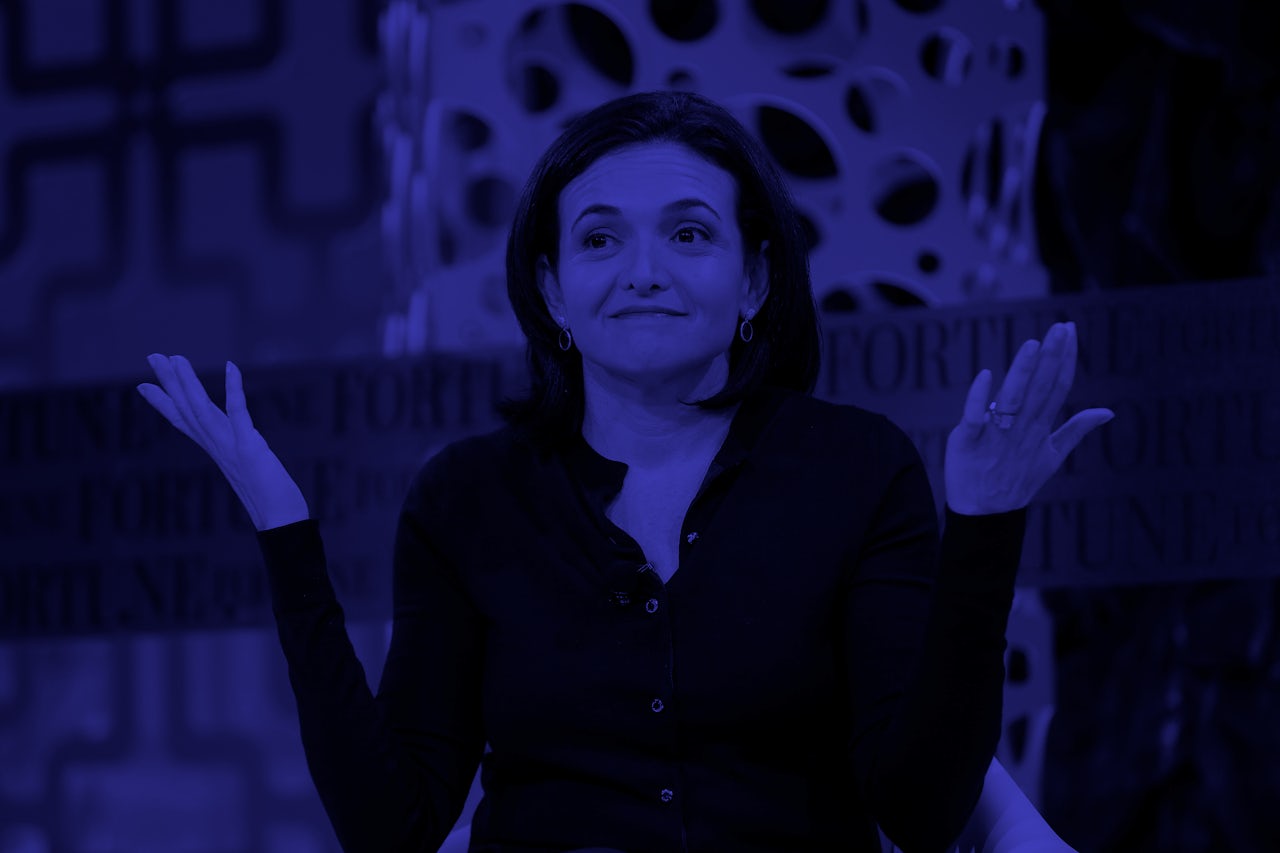On March 19, 2009, NBC’s 30 Rock aired an episode called The Bubble. For the bumbling Liz Lemon, the show begins on a high note — Liz finds herself in a mail mix-up meet-cute with a handsome doctor named Drew, played by Jon Hamm. A few lines of banter ensue, and they fall into a charming courtship. In classic sitcom fashion, the bliss doesn’t last long. Liz soon learns that her ostensibly brilliant and talented suitor is, in fact, an idiot who is bad at everything. But because he is such a beautiful man, nobody wants to deliver this bad news to Drew. Thus he remains utterly unaware of his shortcomings, floating through his days untethered to reality. This is life in “the bubble.”
The bubble has to do with disparities of power; anyone in a powerful position is at risk of people who have less, or fear them, not being honest with them. Drew achieved this with his perfect face, but there’s another way to enter the bubble: joining the C-suite.
A year before The Bubble aired, Sheryl Sandberg did just that, becoming Facebook’s first Chief Operating Officer. During her time in this position, Sandberg has insulated herself from criticism by rewarding agreement and quashing dissent, according to a Bloomberg report published on Monday:
“Sandberg’s favorites are known by the term FOS, for “Friend of Sheryl," and several have been promoted to powerful positions at the company, according to four people familiar with the situation. But there’s been little incentive for these advisers to tell her negative things because she often criticizes people harshly and sometimes ousts them from her close circle when they disappoint her, the people said. “She’s so brutal to people, no one wants to bring her anything,” one of the people added.”
It turns out that in spite of its utopian mission of connecting the world, Facebook is not so egalitarian. It’s a rigid bureaucracy with hints of authoritarianism. Tech companies tried to sell themselves as a new kind of business with a nicer ethos. However, they mistreat workers, contribute to the rapid destruction of our environment, and need a ton of help in the HR department. Which is to say they are just like other corporations, and until we turn over every stone in the place, the people at the top will remain encased in a lucrative, hubristic, and probably climate-proof bubble.
This is a familiar story of corporate leadership and, despite Silicon Valley’s protestations of thinking different, it doesn’t seem all that different for Facebook, which has done nothing but trip over its own feet since the lead-up to the 2016 presidential election. Among other foibles, there was the fake news problem and Russian meddling and Cambridge Analytica and ad buys that allowed anyone to serve racist ads to racist people, most of which we learned about long after the damage had been done. The New York Times’massive investigation published earlier this month details how Sandberg fumbled through these scandals over the past few years.
The Times’ story detailed a series of poor choices made by Sandberg, ranging from obfuscating the scale of misinformation on the platform to hiring a political messaging consultancy to foment conspiracy theories about George Soros and deflect blame away from Facebook. It was not a flattering portrait of Sandberg’s leadership: her main goal seemed to be keeping Facebook’s brand intact, which meant focusing on spin and messaging instead of actually solving problems. (Prior to the Times’ investigation, it appeared to be working) Because she was surrounded by supporters and confidants, Sandberg was caught in a feedback loop of bad judgement that could only be broken by public scrutiny.
Lost in all the concern for the damage Facebook has wrought is how utterly unremarkable Sandberg’s failure of leadership is. There’s no app to make top executives all of a sudden not view their success as evidence of their singular ability to make good decisions. You can’t disrupt or innovate your way out of the dynamics between superiors and subordinates. (I don’t have it in me to say that I don’t like this tweet that seemingly everyone in The Outline’s slack channel loves; who wants to tell Sheryl Sandberg that she is destroying Myanmar?) Subordinates need to be expressly incentivized to be honest with the people above them; no one wants to tell a boss things they don’t want to hear, especially if the boss doesn’t make it safe for them to do so. That anyone is surprised this situation went awry is due to Facebook exceptionalism combined with a culture infatuated with that particular cocktail of psychopathy and work ethic that makes a successful businessperson.
Condemning Sandberg is not absolution for Mark Zuckerberg. Zuckerberg has carved out a spectacular leadership vacuum, considering he is the controlling owner, founder, and CEO of Facebook. Still, Sandberg was always supposed to be the proverbial adult in the room, and based upon Zuckerberg’s vociferous defense of her choices it seems she will remain in that role for the foreseeable future. Sandberg’s predictable struggles and apparent job security demonstrate that no matter how many free meals, meditation classes, and stock options are on offer, a tech company is still a company.
